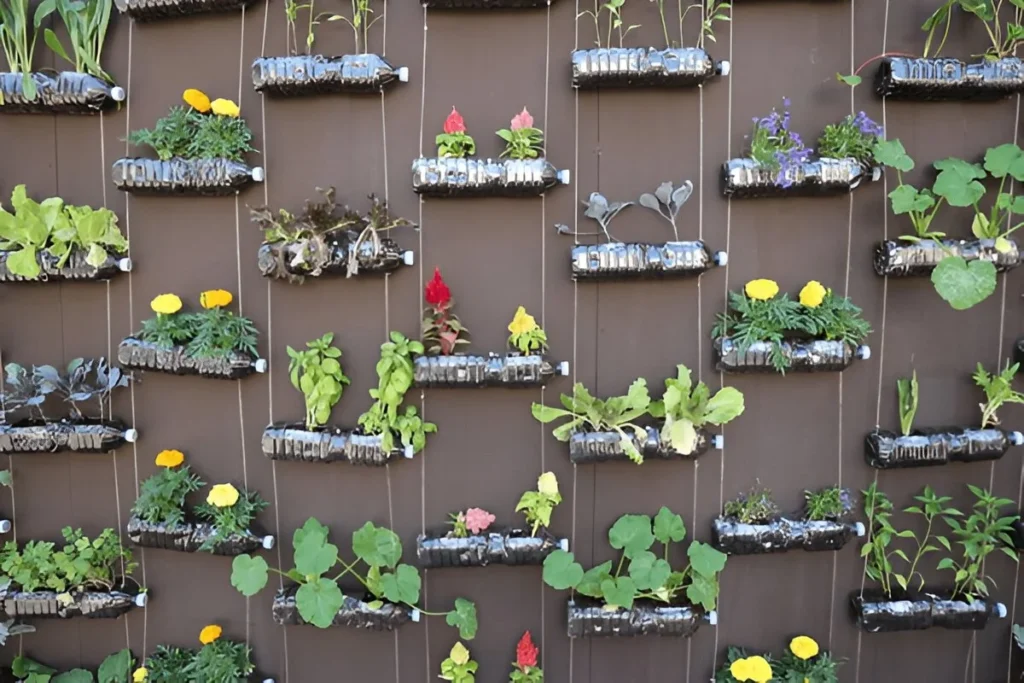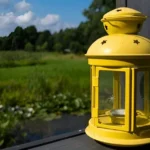Understanding the Challenge
Are you staring at your tiny backyard, balcony, or patio, wondering how you’ll ever create the lush garden of your dreams? You’re not alone. Urban living often means compromising on outdoor space, but here’s the good news: with some creative thinking and intelligent solutions, you can transform even the smallest area into a thriving garden that produces an abundance of flowers, herbs, or vegetables.
The Modern Gardener’s Dilemma
Living in modern cities comes with unique challenges, particularly when it comes to outdoor space. The average urban dwelling has shrunk significantly over the past decades, leaving many aspiring gardeners feeling limited by their available growing area. However, this constraint has led to incredible innovations in small-space gardening.
Why Small Gardens Matter
Tiny gardens are crucial to urban sustainability, biodiversity, and personal well-being. They provide fresh produce, create oxygen, support local wildlife, and offer a peaceful retreat from busy city life. The key is maximizing every inch of available space through intelligent design and innovative growing techniques.
1. Vertical Gardening Solutions
Transform your walls into living, breathing gardens! Vertical gardening is revolutionizing how we think about growing spaces, especially in urban environments.
Wall-Mounted Growing Systems
Wall-mounted gardens aren’t just practical – they’re stunning. You can create a striking visual feature while maximizing your growing space. Consider installing:
- Modular pocket planters
- Recycled pallet gardens
- Professional living wall systems
- DIY trellis networks
Installing Your Wall Garden
Ready to get started? Here’s what you’ll need:
- Secure mounting hardware
- Proper waterproofing
- Good drainage solutions
- Appropriate plant selection
Living Wall Techniques
Living walls take vertical gardening to the next level. These systems can support various plants while creating a stunning visual impact.
Plant Selection for Living Walls
Choose plants that:
- Have shallow root systems
- Are drought-tolerant
- Grow well in vertical conditions
- Complement each other visually
2. Container Gardening Innovations
Container gardening isn’t just about planting pot plants—creating efficient growing systems that maximize space and yield.
Multi-Tiered Container Systems
Think upward with your containers! Multi-tiered systems can triple or even quadruple your growing space.
Creating Your Tiered System
Build a custom tiered garden using:
- Repurposed ladders
- Custom-built shelving
- Stackable containers
- Rolling plant stands
Self-Watering Container Options
Busy lifestyle? Self-watering containers are your answer. They provide consistent moisture while saving time and water.
Benefits of Self-Watering Systems
- Reduced water consumption
- Consistent plant growth
- Lower maintenance requirements
- Better root development
3. Maximizing Ground Space
Proper planning can significantly increase your growing area even with limited ground space.
Square Foot Gardening Method
This revolutionary method can help you grow more in less space through careful planning and organization.
Setting Up Square Foot Gardens
- Create raised beds
- Divide into square-foot sections
- Plan plant placement
- Implement succession planting
Intensive Planting Techniques
Make every inch count with intensive planting methods that maximize yield while maintaining plant health.
Spacing Guidelines
Learn to space plants:
- Vertically
- Horizontally
- In layers
- According to mature size
4. Overhead Growing Solutions
Look up! The space above your head is valuable real estate for growing plants.
Hanging Gardens
Hanging gardens can transform unused overhead space into productive growing areas.
Types of Hanging Systems
- Traditional hanging baskets
- Upside-down planters
- Macramé plant holders
- Suspended gutter gardens
Overhead Trellis Systems
Create green tunnels and archways that provide both beauty and bounty.
Building Your Overhead Garden
Steps to success:
- Choose sturdy support structures
- Select appropriate climbing plants
- Install proper irrigation
- Plan for maintenance access
5. Space-Efficient Growing Methods
Let’s dive into some cutting-edge techniques that can revolutionize your small garden space.
Hydroponic Systems
Have you ever wondered how to grow without soil? Hydroponics might be your answer to maximizing space and yield.
Benefits of Hydroponics
- 30-50% faster growth than traditional methods
- It uses 90% less water
- Requires minimal space
- Year-round growing potential
Getting Started with Hydroponics
You don’t need to be a scientist to start with hydroponics! Begin with:
- Simple window systems
- Small-scale nutrient film technique (NFT)
- Deep water culture buckets
- Vertical hydroponic towers
Aquaponic Solutions
Want to raise fish and grow plants simultaneously? Aquaponics creates a beautiful symbiotic relationship.
Setting Up Aquaponics
Your basic setup needs:
- Fish tank or pond
- Growing beds
- Pump system
- Appropriate fish species
- Compatible plants
Micro-Gardening Techniques
Think small to grow big! Micro-gardening can yield surprising amounts of produce.
Microgreen Production
- Choose fast-growing varieties
- Use shallow trays
- Maintain proper humidity
- Harvest within 2-3 weeks
6. Creative Space Transformation
Time to think outside the box and transform unexpected spaces into growing areas!
Repurposed Furniture Gardens
That old dresser or bookshelf? It’s your new garden space!
Furniture Transformation Ideas
Transform these items into gardens:
- Old ladders into plant stands
- Dressers into tiered gardens
- Bookshelves into herb stations
- Tables into mini-greenhouses
Hidden Garden Spaces
Discover growing spaces you never knew you had!
Unexpected Growing Locations
Look for opportunities in:
- Under-stair spaces
- Window sills
- Door frames
- Fence tops
- Railings
Multi-functional Garden Features
Make every garden element serve multiple purposes.
Dual-Purpose Design Elements
Create:
- Privacy screens that grow vegetables
- Seating with built-in planters
- Storage units with growing spaces
- Decorative elements that produce food
7. Technical Considerations
Success in small-space gardening requires attention to technical details.
Soil Management
Quality soil is your foundation for success.
Soil Optimization Techniques
- Use premium potting mixes
- Add organic matter regularly
- Monitor pH levels
- Practice crop rotation
Water Conservation
Every drop counts in a small garden!
Smart Watering Systems
Implement:
- Drip irrigation
- Water timers
- Moisture sensors
- Rain collection systems
Light Optimization
Make the most of available light in your space.
Maximizing Natural Light
- Use reflective surfaces
- Position plants strategically
- Rotate containers regularly
- Install grow lights when needed
Plant Selection and Planning
Choosing the right plants can make or break your small garden’s success.
Best Plants for Small Spaces
Not all plants are created equal when it comes to small spaces.
Top Compact Varieties
Consider:
- Determinate tomatoes
- Bush beans
- Dwarf fruit trees
- Compact herbs
Seasonal Planning
Make your garden productive year-round.
Year-Round Growing Schedule
Plan for:
- Spring crops
- Summer harvests
- Fall plantings
- Winter protection
Success Stories and Implementation
Let’s look at real-world examples of successful small gardens.
Urban Success Stories
Meet Sarah, who transformed her 50-square-foot balcony into a food forest!
Case Study Highlights
- Produced 200 pounds of vegetables annually
- Created vertical herb gardens
- Integrated butterfly-friendly flowers
- Maintained year-round harvests
Conclusion: Your Small Garden Journey
Remember, a small garden doesn’t mean small results. With these seven genius ideas, you can create a productive and beautiful growing space that defies its size limitations. Start with one method and gradually incorporate others as you gain confidence and experience.
Key Takeaways
- Vertical space is your friend
- Multi-functional elements maximize space
- Technology can enhance productivity
- Proper planning is essential
- Regular maintenance ensures success
Frequently Asked Questions
How much sunlight do I need for a successful small garden?
Most vegetables and flowering plants need daily daily 6-8 hours of direct sunlight. However, herbs and leafy greens can thrive in 6 hours or less. Consider using grow lights to supplement natural light in darker areas.
What are the best vegetables to grow in a small space?
The most space-efficient vegetables include:
Cherry tomatoes (vertical growing)
Leafy greens (quick harvest)
Bush beans (compact growth)
Herbs (continuous harvest)
Root vegetables (deep containers)
How can I prevent pest problems in my small garden?
Implement integrated pest management:
Regular inspection
Companion planting
Natural predator encouragement
Organic pest control methods
Good air circulation
What’s the minimum depth needed for container gardening?
Container depth requirements vary:
Herbs: 6-8 inches
Leafy greens: 4-6 inches
Root vegetables: 12-14 inches
Tomatoes: 18-24 inches
Dwarf fruit trees: 24-36 inches
How can I maintain soil fertility in a small garden?
Maintain soil health through:
Regular composting
Crop rotation
Cover cropping in off-seasons
Organic fertilizer application
Mulching to retain nutrients






